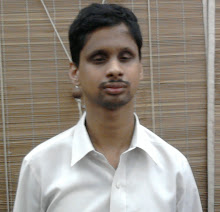Technology in todays world is not just a comodity of comfort or some secondary thing which comes after food clothing and shelter.
The way technology impacts the daily life of humans, we now can compare it to a "third brain ".
Human civilisations have always been knowledge civilisations and there is nothing new about the ability of humans to acquire, express and share knowledge.
Infact the birth of civil societies lies in the fact that humans have a very special ability of communicating information or sharing knowledge.
What has changed though is the way we share knowledge.
Today reading and writing information is done mostly by means of Information Communication Technology (ICT).
Computers in all their forms have given a new dymention to our ability to learn and teach, to do work in a much efficient manner and at unimaginabally high speed.
thus ICT raises the human creativity to infinity.
This technological change has not just brought new possibilities of doing daily work fast and more efficient as well as accurate, but if used properly ICT can solve many problems which we could not imagine to solve without it.
However with the great advantages ICT has brought, it has also created another possibility, a possibility of some power seekers to misuse it and under the name of "doing business " impose the power to restrict the technology users.
Technology in the hands of such individuals and organisations is a powerful tool to deny freedom and control the users to make them do any thing desired for what ever cause.
Such people develop what is called as the proprietory software.
Proprietory softwares are used by many people today, but they are unaware that while a few functional aspects are in their control, they don't have any real freedom to use it the way they want or make changes they want.
Not stopping on these set of restrictions, the proprietory softwares complemented by similar digital standards also curtail the way we store and display information.
This means that our third brain, the brain made of ICT is ruled by some one whom we don't know or may not like to trust.
It goes without saying that almost every thing we do including the major tasks of our daily life happen through digital technology.
It is this major aspect which the developers of proprietory software exployte and keep the users helpless (because they can only do what is allowed) and devided (because they can't share the software or its code ).
Given that this is how proprietory technologies work and given that software is the most important component for instructing the computers exactly what to do, this proprietory softwares are a dangerous crysis to the digital society and the freedom of humans.
To solve this problems Free Software Foundation http://www.fsf.org was established in 1984.
The gnu operating system was developed and later on linux kernal started to be used with the OS and now gnu/linux is the most popular, high-quality, stable, secured and very user friendly free software in the world.
On the fundamentals of free software initiated by FSF, many new softwares are developed every day and due to its vary nature of free as in freedom, we also get rapid bug fixes and updates for such free softwares.
Unlike proprietory softwares which totally restrict users to a few functional tasks, free software not just provides better functionality in most cases, but also provides the freedom to use the software for any purpose on any number of computers, the freedom to study and modify the software and freedom to re-distribute and share the original or modified versions of a certain free software.
On this blog we will discuss need for free software and how this need gave rise to a successful revolution which now influences not just technology users but also the politics and research, study and entertainment and any thing that involves technology.
I will list many developments and experiments which i have encountered and would share my personal experiences including those in workshops I take or developer meets I attend.
So watchout for more on this blog.
.
Sunday, January 20, 2008
Subscribe to:
Comments (Atom)
